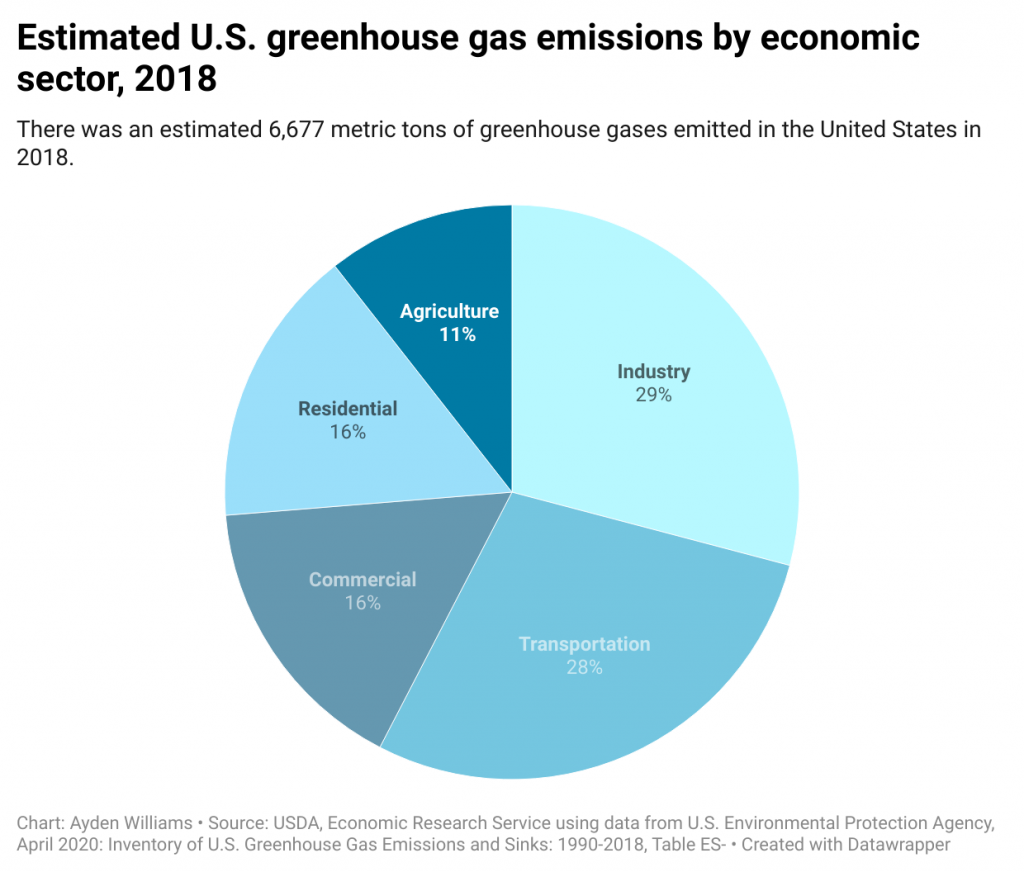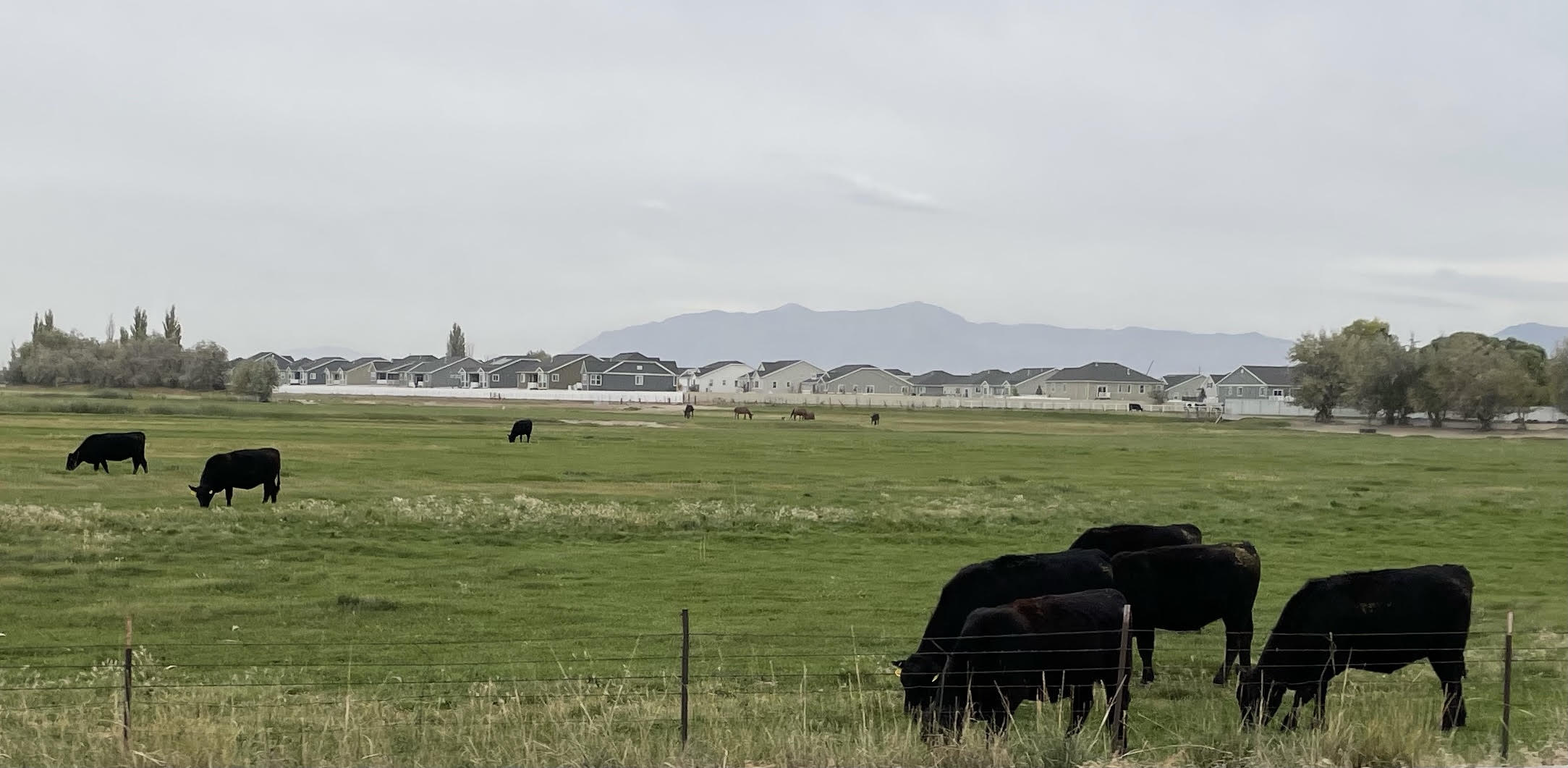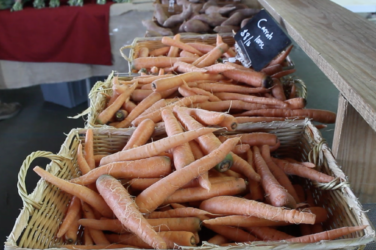Julia Hauser became vegetarian when she first started college. Now, she thinks climate change is going to push more people to become vegetarian, too.
Hauser is an environmental engineering major and a sustainability ambassador at the University of Georgia. She believes many others will join her in becoming vegetarian for environmental reasons because cows emit large amounts of methane and take up a lot of water and land as well.
“I think as climate change becomes more severe, and a more pressing issue, you’ll see an increasing amount of people who are becoming vegetarian or vegan, or switching over to alternative protein sources,” Hauser said. “That results in fewer greenhouse gases being emitted.”
Hauser knows not everyone will want to commit to fully becoming vegetarian. However, she encourages everyone who wants to help to do their best, “you can gradually work your way towards eating less meat. I mean, your goal doesn’t even have to be vegetarianism.”
Making the decision to entirely cut meat out of your diet is a large commitment that Hauser does not take lightly. Because of this, she wants people to not hold themselves to too high of a standard. “I would say it doesn’t have to be strict. It’s not the end of the world if you have a steak every once in a while,” Hauser said. “I would say you can be a flexitarian, or you just don’t eat meat very often. Maybe once or twice a month, you’ll have some chicken or fish.”
Why It’s Newsworthy: Methane is the second most common greenhouse gas emitted in the United States. Changing your diet is a potential way to lower your carbon footprint.
According to the Climate and Clean Air Coalition (CCAC), lowering farming-related methane emissions would be an important step towards combating climate change. The CCAC’s Global Methane Assessment mentions a change in people’s diets could be a possible solution to reaching this goal.
“Ruminant animals are large sources of methane emissions. It is therefore not surprising that several studies suggest that dietary shifts could significantly contribute to reducing greenhouse gas emissions,” according to the assessment.
Why is Lowering Methane Emissions Important?
According to the United States Environmental Protection Agency (EPA), methane (CH4) was the second largest greenhouse gas emitted from human practices in the United States in 2019 behind only carbon dioxide.

The United Nations Environment Program (UNEP) states lowering methane emissions is crucial even though methane burns in the atmosphere for a shorter amount of time than carbon dioxide. Carbon dioxide can last in the atmosphere for hundreds to thousands of years, whereas methane can break down after 10 years. While it spends less time burning in the atmosphere than carbon dioxide, methane is much more potent in warming the atmosphere.
This makes cutting down on methane emissions a more immediate solution to improve climate change and according to UNEP, “human-caused methane emissions could be reduced by as much as 45 percent within the decade. This would avert nearly 0.3°C of global warming by 2045, helping to limit global temperature rise to 1.5˚C and putting the planet on track to achieve the Paris Agreement targets.”
UNEP states agriculture is the primary source of methane emissions. Livestock emissions alone account for an estimated 32 percent of human-caused emissions. Livestock emissions mainly come from cows due to enteric fermentation, a natural part of a cow’s digestive process that produces methane.
What are the Limitations?
Reducing beef from one’s diet is not an easy transition, said Amanda Berg, a nutritional sciences professor at UGA and an extension nutrition and health specialist. Berg said when something is removed from your diet, the nutrients must be replaced.
“When I talk to people about what are the benefits of removing something from their diet, the big question is, ‘What are you going to replace it with, right?’ Because most people don’t just remove beef and then not eat anything else in its place,” Berg said.
Replacing the nutrition lost from reducing beef in your diet is crucial.
“It really depends on what you replace beef with as to what is going to be the nutritional benefit or detriment potentially, or just a wash out,” said Berg. “When you think about plant sources or protein that you might replace those with, you’d want to choose things like perhaps, edamame or soy, or nuts and nut butters that have more of those unsaturated fatty acids as compared to those saturated fatty acids.”
From a nutritional standpoint, there are also health benefits to reducing beef from your diet as long as the nutrients lost are replaced with other foods.
“The negative aspects of beef or red meat are, you know that high levels of red meat intake have been associated with certain types of cancer, specifically colorectal cancer. So by decreasing the amount of beef that you eat, you might be decreasing your risk for colorectal cancer,” Berg said.
Because of these health risks, beef is not thought of as the healthiest protein source.
Berg argues there are benefits to keeping beef in your diet.
“Beef gets a really bad rap, but when you’re choosing a lean cut of beef it is a nutritional powerhouse,” said Berg, “It’s got really significant amounts of protein, B vitamins, and some of those B vitamins you can’t find in plant sources like B12.”
Hauser said she is aware not everyone will become vegetarian to fight climate change. However, she is hopeful everyone will help do their part. “If you have meat one time a week less than you typically do, that’s better than nothing. It doesn’t have to be black and white. There’s a big gray area there.”
Ayden Williams is a senior journalism major in the Grady College of Journalism and Mass Communication and minoring in business and sport management at the University of Georgia.









Show Comments (1)
Sylvie
A very big thank you to Ayden Williams for reporting on this universally important topic. Our family cut beef out of our diet 20+ years ago and don’t miss it at all. I would think that it’s an uphill battle, trying to convince a notoriously meat-loving crowd here in the south to change their ways. Hopefully the youth of the south will provide an enlightened way forward, where compromising self-gratification for the betterment of all is the right choice.